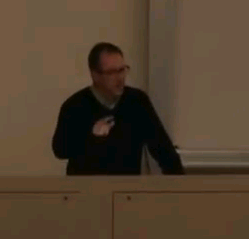Recorded Sustainability Seminar Lecture on Wednesday, March 9, 2011 delivered by UCI Professor Richard Matthew.
Families and health, businesses and educational systems, fresh water and clean air- there are a lot of things in our world that we would like to last. They are the material underpinnings of freedom, dignity, comfort and stability. We have come to realize over the last few decades, however, that some of the things we value and depend upon are moving along trajectories that are not sustainable. The costs are mounting and we can imagine a point in the not too distant future when some of these things run out of gas, falter, perhaps collapse. We have also come to realize that many of the things we value are deeply interconnected. Failure in one area can ripple across many other domains, always complicating matters, and, at times, generating complex disasters. These realizations, rooted in scientific enquiry and local knowledge, have generated one of the defining questions of our age: How do we design, promote, manage and measure the sustainability of different things, at different scales and in different contexts? The advanced state of many alarming trends and the complexity involved in transforming vast, interconnected processes can seem inexorably to lead to a simple answer: we can’t. But is this really the best answer? We have unprecedented knowledge and tools that confer unprecedented power. Indeed, we often hear that solutions to many of our most daunting problems exist, but that we lack the political will to implement them. Which suggests we have something important that needs to be introduced, or reintroduced, into politics. Because in a democracy political will, the will to tackle new challenges, is the fruit of political concern and engagement. Politics here and across the world could be-and should be-the realm where we explore the challenging questions of our era from many perspectives, mobilize support for possible solutions, experiment with answers, share resources and lessons learned, and fairly and openly assess the effects of our decisions. Politics at its best allows us to do all this in a context imbued with powerful notions of fairness, dignity, and freedom. A politics of sustainability is not only possible, it is in some sense fundamental. Because in its most elemental form politics is about sustainability-about defining the life we want to lead together, and the conditions under which such life can endure and flourish.



